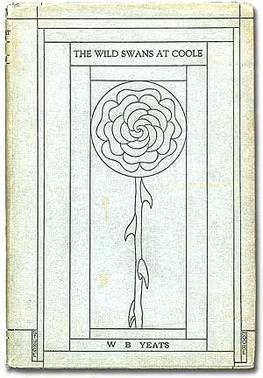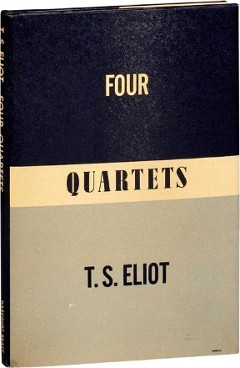
John Keats was an English poet of the second generation of Romantic poets, along with Lord Byron and Percy Bysshe Shelley. His poems had been in publication for less than four years when he died of tuberculosis at the age of 25. They were indifferently received in his lifetime, but his fame grew rapidly after his death. By the end of the century, he was placed in the canon of English literature, strongly influencing many writers of the Pre-Raphaelite Brotherhood; the Encyclopædia Britannica of 1888 called one ode "one of the final masterpieces".

William Butler Yeats was an Irish poet, dramatist and writer, and one of the foremost figures of 20th-century literature. He was a driving force behind the Irish Literary Revival, and along with Lady Gregory founded the Abbey Theatre, serving as its chief during its early years. He was awarded the 1923 Nobel Prize in Literature, and later served two terms as a Senator of the Irish Free State.
The Wanderings of Oisin is an epic poem published by William Butler Yeats in 1889 in the book The Wanderings of Oisin and Other Poems. It was his first publication outside magazines, and immediately won him a reputation as a significant poet. This narrative poem takes the form of a dialogue between the aged Irish hero Oisín and St. Patrick, the man traditionally responsible for converting Ireland to Christianity. Most of the poem is spoken by Oisin, relating his 300-year sojourn in the isles of Faerie. The poem was not popular among modernist critics like T. S. Eliot. However, Harold Bloom defended this poem in his book-length study of Yeats, and concludes that it deserves reconsideration.

John Allyn McAlpin Berryman was an American poet and scholar. He was a major figure in American poetry in the second half of the 20th century and is considered a key figure in the "confessional" school of poetry. His 77 Dream Songs (1964) won the 1965 Pulitzer Prize for Poetry.

Helen Vendler was an American academic, writer and literary critic. She was a professor of English language and history at Boston University, Cornell, Harvard, and other universities. Her academic focus was critical analysis of poetry and she studied poets from Shakespeare and George Herbert to modern poets such as Wallace Stevens and Seamus Heaney. Her technique was close reading, which she described as "reading from the point of view of a writer".

The Wild Swans at Coole is the name of two collections of poetry by W. B. Yeats, published in 1917 and 1919.
— Opening lines from The Waste Land by T. S. Eliot, first published this year
Nationality words link to articles with information on the nation's poetry or literature.
—Closing lines of "Easter, 1916" by W. B. Yeats
— closing lines of Rudyard Kipling's If—, first published this year in Rewards and Fairies
Nationality words link to articles with information on the nation's poetry or literature.

"On being asked for a War Poem" is a poem by William Butler Yeats written on 6 February 1915 in response to a request by Henry James that Yeats compose a political poem about World War I. Yeats changed the poem's title from "To a friend who has asked me to sign his manifesto to the neutral nations" to "A Reason for Keeping Silent" before sending it in a letter to James, which Yeats wrote at Coole Park on 20 August 1915. The poem was prefaced with a note stating: "It is the only thing I have written of the war or will write, so I hope it may not seem unfitting." The poem was first published in Edith Wharton's The Book of the Homeless in 1916 as "A Reason for Keeping Silent". When it was later reprinted in The Wild Swans at Coole, the title was changed to "On being asked for a War Poem".
This is a list of all works by Irish poet and dramatist W. B. Yeats (1865–1939), winner of the 1923 Nobel Prize in Literature and a major figure in 20th-century literature. Works sometimes appear twice if parts of new editions or significantly revised. Posthumous editions are also included if they are the first publication of a new or significantly revised work. Years are linked to corresponding "year in poetry" articles for works of poetry, and "year in literature" articles for other works.
Swift's Epitaph is a translation by Irish poet William Butler Yeats of Jonathan Swift's epitaph, which Swift wrote for himself in Latin. Yeats' somewhat free translation appeared in his 1933 collection The Winding Stair and Other Poems.

The Well Wrought Urn: Studies in the Structure of Poetry is a 1947 collection of essays by Cleanth Brooks. It is considered a seminal text in the New Critical school of literary criticism. The title contains an allusion to the fourth stanza of John Donne's poem, "The Canonization", which is the primary subject of the first chapter of the book.
"Aedh Wishes for the Cloths of Heaven", also known as "He Wishes for the Cloths of Heaven" in later publications, is a poem by William Butler Yeats. It was published in 1899 in his third volume of poetry, The Wind Among the Reeds.
"A Drunken Man's Praise of Sobriety" is a poem written by the Irish poet William Butler Yeats, first published in his 1938 collection New Poems. The poem begins with the lines:

Michael O'Neill was an English poet and scholar, specialising in the Romantic period and post-war poetry. He published four volumes of original poetry; his academic writing was praised as "beautifully and lucidly written".
Little Gidding is the fourth and final poem of T. S. Eliot's Four Quartets, a series of poems that discuss time, perspective, humanity, and salvation. It was first published in September 1942 after being delayed for over a year because of the air-raids on Great Britain during World War II and Eliot's declining health. The title refers to a small Anglican community in Little Gidding in Huntingdonshire, established by Nicholas Ferrar in the 17th century and scattered during the English Civil War.

Four Quartets is a set of four poems written by T. S. Eliot that were published over a six-year period. The first poem, Burnt Norton, was published with a collection of his early works. After a few years, Eliot composed the other three poems, East Coker, The Dry Salvages, and Little Gidding, which were written during World War II and the air-raids on Great Britain. They were first published as a series by Faber and Faber in Great Britain between 1940 and 1942 towards the end of Eliot's poetic career. The poems were not collected until Eliot's New York publisher printed them together in 1943.








